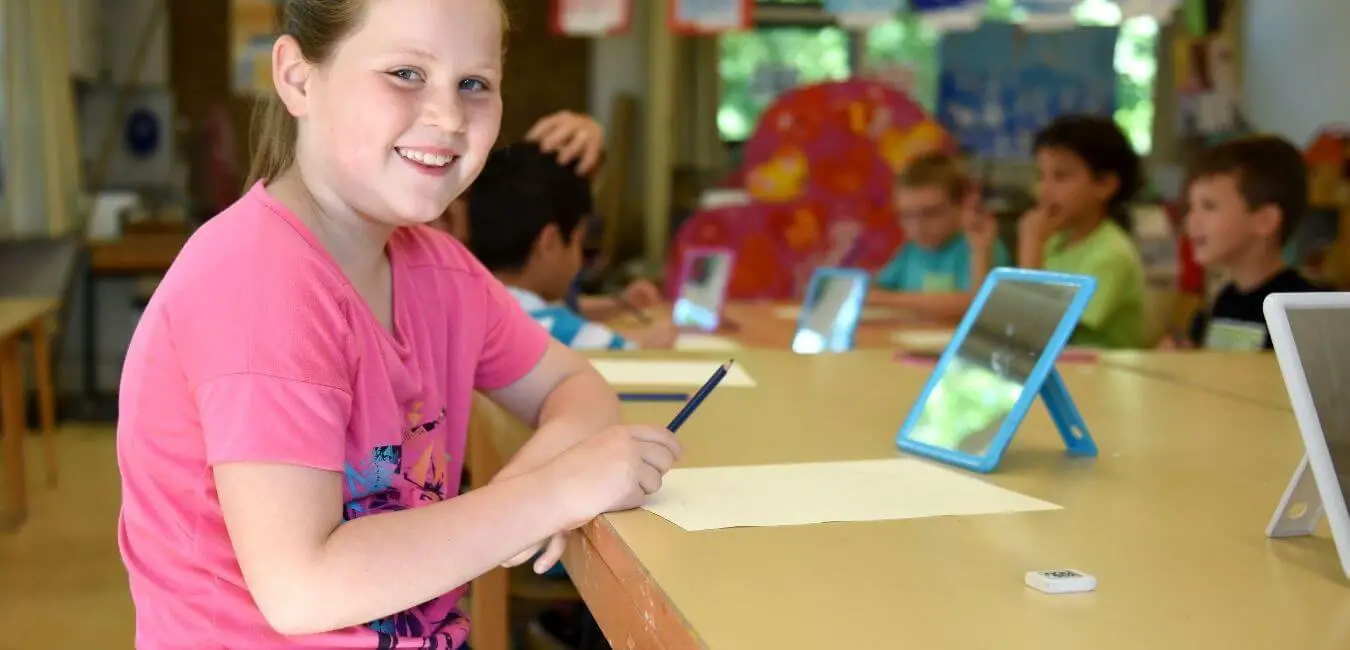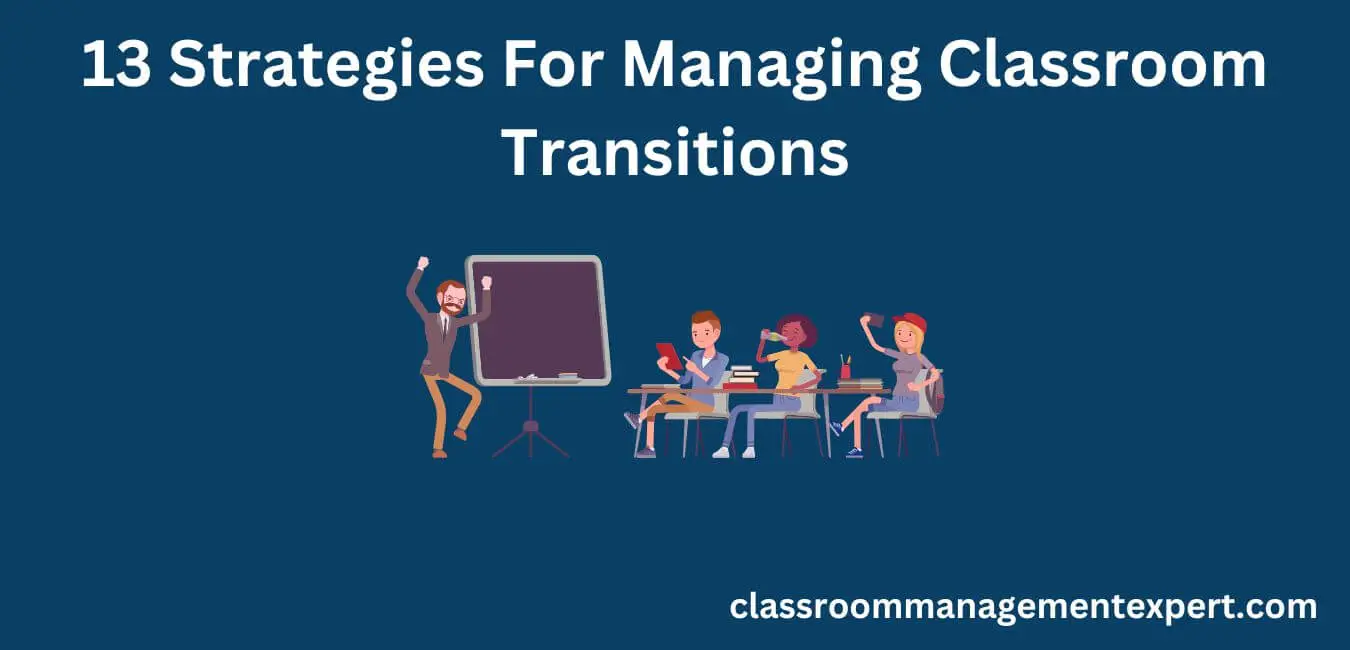It’s hard to teach when the classroom is disrupted. That’s why it’s important for teachers to understand the causes of disruptive behavior in children, so they can recognize and deal with these issues before they get out of control.
In this blog, we’ll explore some of the most common causes of disruptive behavior in children and discuss how you can help your students learn from their mistakes while giving them a chance at a better future.
28 Causes of Disruptive Behavior in the classroom
What causes disruptive behavior in the classroom? There are many factors that can contribute to behaviors in class, some of which may come as a surprise. It is important to remember that teachers are responsible for creating an appropriate environment in their classroom where students feel safe and open about sharing their opinions. This will not only enable them to behave better, but also help them achieve more.
The following list displays 28 of the most common causes of disruptive behavior in the classroom:
1. Lack of respect
Disruptive behavior can occur when students have lack of respect towards one another or towards the teacher. To avoid this from occurring, keep an eye on how students are communicating with one another. If you think that there may be a problem, then encourage your students to share their thoughts appropriately.
2. Low self-esteem
Pupils who constantly put themselves down and do not believe that they can achieve will end up disrupting the class. Encourage them constantly and praise them when they get things right. It will help them to build up their self-esteem and enable them to feel like they can achieve anything.
3. Trying too hard
Sometimes pupils tend to overcompensate and try too hard in order to succeed, which usually results in disrupting the class or not paying attention when needed. Try to encourage your students by providing positive reinforcement and praise when it is due, as this will motivate them to continue their good work.
4. Not enough rest
Students who are not getting enough sleep will behave differently in class compared to those who are well-rested. Keep an eye on how your students are doing during the day by asking them questions about whether they slept well before coming into school.
5. Lack of interest
If your students are not interested in the topic that you are teaching them, then they will begin to misbehave or cause disruption in class. Make sure that your lessons are interesting and interactive so that your students want to be there. If they are enjoying themselves, then they will behave better.
6. Lack of self-control
If students do not have enough self-control, then they will find it difficult to behave in class. To avoid this from occurring, spend quality time getting to know your students and helping them develop their social skills.
7. Embarrassment
Sometimes disruptive behavior is caused by embarrassment. If the student feels embarrassed, then they will find it difficult to behave. For example, the student may not be able to pay attention in class. Speak to your students and get them to work out how they are feeling to reduce the chance of this disrupting the class.
8. Feeling tired
If pupils are tired, then they will have a lack of concentration which will result in disruptive behavior during your lessons. Try to get your students to go to sleep early the night before and make sure they get plenty of rest during the day to avoid this from happening.
9. Anger
When a student feels angry, then they may lash out in your class and cause disruption. If you know that a student is carrying around a lot of anger, then talk them through what they are feeling to make them feel better.
10. Not understanding the lesson
Sometimes students will behave badly when they do not understand what is being taught in class. If you think this may be happening, then try to provide more examples for your student or rephrase the lesson plans in a way that enables them to catch up with the rest of the class.
11. Distractions
If students do not have enough space to work in, then they may become distracted and cause disruption. Try to give your students plenty of room as well as keep distractions to a minimum such as their phones. This will help them concentrate on the lesson at hand and behave better.
12. Feeling anxious
If your student is feeling too anxious, then they may act out or disrupt the class. Try to work through this with your students by giving them reassurance and telling them how proud you are of them for their efforts so far.
13. Arrogance
If a pupil believes that they are the best at everything and behave as such, then they may cause disruption. Try to encourage your students and tell them that everyone has strengths and weaknesses.
14. Feeling ignored or snubbed
If a student feels like they are being ignored then it is likely that they will feel upset which could result in disruptive behavior. Make sure that you give your students plenty of attention and be sure to thank them for their hard work during lessons.
15. Feeling overwhelmed
If your students feel overwhelmed, then they may behave in a way that shows this. Make sure that you give them breaks and take one step back from the lesson plan to help them feel at ease with what is going on around them. This will reduce the likeliness of them misbehaving.
16. Being bullied
If a student is being picked on or bullied, then it is likely that this will cause them to feel uncomfortable and as though they do not belong. Try to take any reports of bullying seriously and find out what you can do as an instructor to combat this from occurring.
17. Punishment
If your pupil is feeling punished, they will likely become angry and disruptive. Try to make sure you talk through any punishments with them beforehand in order for this not to happen when the situation arises during the lesson.
18. Feeling like they do not fit in
If a student feels like they do not belong, then they are likely to become disruptive. Try to include your students in lessons by asking them questions and making sure they feel included during any group work.
19. Low concentration levels
If your student is feeling low on concentration, then it is more likely that they will cause disruption in class. Make sure that you give them plenty of space to think outside of the classroom and try to work on interesting lesson plans so they have more fun.
20. Lack of sleep
If a pupil does not get enough sleep, then they are likely to become tired and unfocused which could result in disruptive behavior. Make sure that you talk to your students about their sleeping patterns and give them plenty of rest during the day.
21. Not liking the rules of the classroom
If your student does not agree with your rules, then they are likely to cause disruption. Try to explain the points of the rules and why these have been introduced so that your students understand them better.
22. Feeling bored
If a student is feeling bored, it is possible that they will become disruptive in order to change this. You should make sure that you provide your students with plenty of activities to keep them interested and engaged during lessons.
23. Learning issues
If your student is having trouble learning, then it is likely they will act out in order to avoid any future problems. Try to work closely with the school’s psychologist so that you can help resolve any learning issues.
24. Having too much energy
If your student has too much energy, then it is likely that they will become disruptive. Consider ways to help your student release their energy during the day and provide them with suitable activities in which they can focus their attention in lessons.
25. Having a lower attention span
If your students have a shorter attention span than most, then it is likely that they will cause disruption in order for you to give them more attention. Try to provide the students with plenty of visuals and interesting activities so they can remain interested in your lessons.
26. Not liking the school
If a student does not like their school, then it is likely that their attitude will affect their behavior in class, leading to disruption. Try to promote a positive image of the school in lessons so your students see what they have to look forward to after class.
27. Not being able to cope with a change
If a student is not coping well with a change, then it is likely that this will cause disruption during the lesson. You should make sure that you give your students plenty of time and space to adjust to the new situation.
28. Stress
If your student is stressed about something, then it is likely that this will cause disruption. Try to promote a relaxed environment during your lessons so that your students can feel at ease and more able to focus their attention on the lesson.
Check out our blog page for more articles.
Final Thoughts
Some of the most common causes for disruptive behavior in a classroom are feeling like they do not fit in, low concentration levels, lack of sleep, dislike for rules or school policies, and various learning issues. If you can spot these early on, then it will be much easier to keep your class under control. This is why regular meetings with students are so important to help identify any problems before they have an opportunity to escalate into any major disruptions. Teachers should also try their best to promote positivity during lessons as well as provide plenty of support after-class through activities that interest them – if this doesn’t work then teachers may need to consider getting outside assistance from someone who has experience working with individuals experiencing behavioral difficulties such as bullying or other external factors which could cause disruption in the classroom.
















